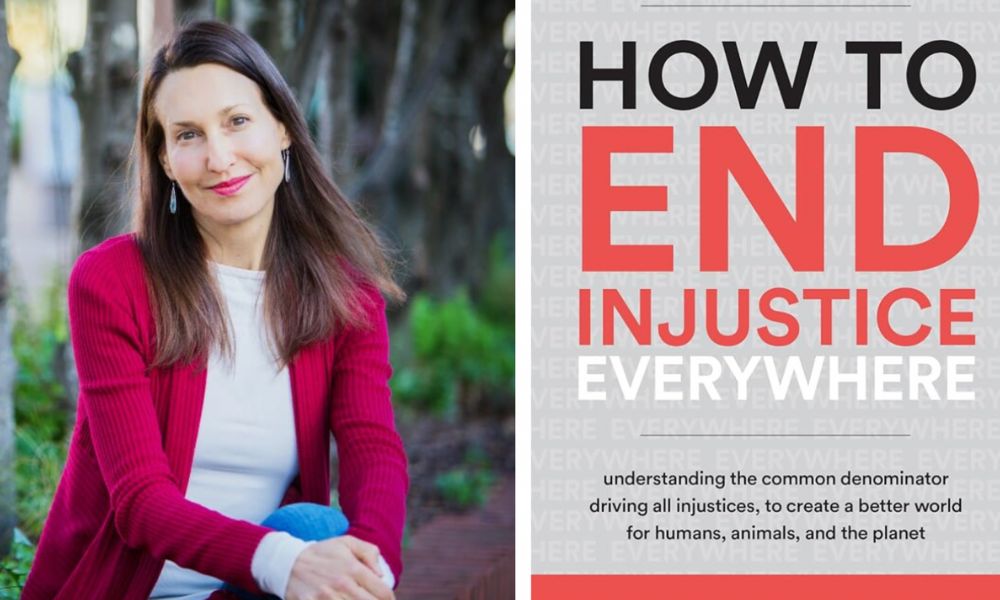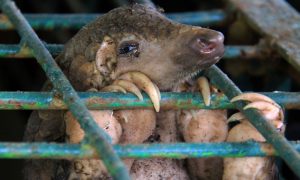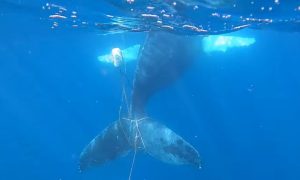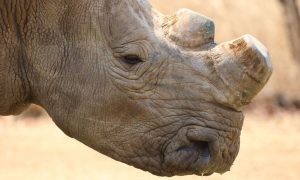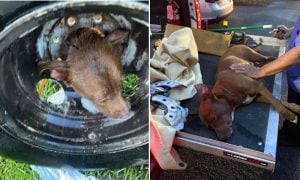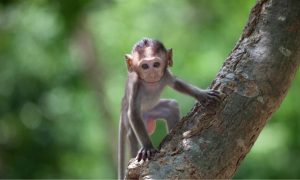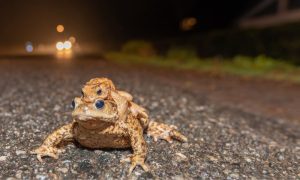A new book by psychologist and vegan advocate Dr. Melanie Joy explores how oppressive systems sustain themselves and how animal and social justice warriors can stay sane and healthy while working to dismantle them.
How To End Injustice Everywhere builds on Joy’s previous works on Carnism — or the invisible belief system that conditions people to eat certain animals but not others — but also looks at issues of oppression across other justice movements. Joy notes that a common denominator to all abuses is dysfunctional ways of relating, and the book dives deeply into how to build a more relational world.
“Ending oppression requires not simply abolishing oppressive polices and practices but transforming the way we think and, ultimately, relate,” Joy writes in the book. “We simply need to more fully access our authentic selves — to reconnect with the parts of ourselves that have been buried beneath the fear, anger, and shame of non-relational conditioning.”
The new book also broaches the topic of “infighting,” which refers to how tensions and other factors like stress can turn members within an organization or a movement against each other.
Joy — who is the founder of nonprofit Beyond Carnism, co-founder of the Center for Effective Vegan Advocacy, and author of the best-selling Why We Love Dogs, Eat Pigs, and Wear Cows — also created a new website called infighting.org after recognizing infighting is a major factor contributing to advocate burnout and wasted resources in justice movements that need all the help they can get.
Whether facing overwhelm from team tensions or the global atrocities committed against animals daily, Joy hopes the new book and website will be powerful tools for advocates to re-find their centers and reclaim their power — for the long haul — in a chaotic and triggering world.
The following Q & A has been edited for length. Those interested in getting a copy of the book can order How to End Injustice Everywhere here. Those interested in learning more about Carnism can check out Beyond Carnism’s website here.
And for advocates interested in learning more about infighting or building a self-care and self-awareness practice to boost their well-being and impact, check out infighting.org’s list of tools and resources here.
A Q&A with Melanie Joy, Author of How To End Injustice Everywhere

Dr. Melanie Joy (Courtesy of Melanie Joy)
Why did you feel that writing this new book was so important?
I wanted to try to understand the common mentality that drives all forms of injustice. After having done my work on Carnism, I realized that this information is relevant to all people who are working for social change — whether it’s for humans, the environment, or animals. Our work is tough and the road ahead of us is very long, and we desperately need everyone we can in these movements. I also wanted to write the book because I felt it was time for activists who are working for justice to start bridging the gap of our causes. There’s a lot more unification these days, but there could be more, and there is still a lot of infighting.
Can you give an overview of infighting, its effects, and your new website?
Infighting is sucking out a massive amount of resources from the animal justice movement, for sure, but also all justice movements. A lot of money and morale and time and effort are being wasted.
The way the world is right now, people and organizations are suffering a lot. People in positions of leadership are feeling like their backs are against a wall, and they are getting increasingly afraid to engage. I’ve seen a lot of really committed people leaving their positions, including people who have founded their own organizations, because they can’t take it anymore. My hope is there is a way to navigate all of this so that people don’t have to leave the movement and their jobs.
Infighting has never, to the best of my knowledge, been tackled as an issue where we’ve broken it down and said: What is it? What causes it? What are the consequences? And most importantly — what are the tools that we can use to become immediately proactive in helping to end it?
So that’s what I wanted to do with the website. There are a lot of practical tools on the website for anybody who wants to increase the chances that they will contribute to ending infighting.
Can you give an overview of the structures that keep oppressive systems alive and how this relates to animal protection issues?
Oppressive systems, and the mentality that enables those systems, share the same type of structure, whether we’re talking about Carnism, patriarchy, or racism, for instance. These unjust systems are structured around violence and unnecessary harm, and they require people to participate in them to stay alive.
One of these unjust systems that’s organized around violence is Carnism — the invisible belief system that conditions people to eat certain animals. Most people are hard-wired to have empathy for others, including animals. Most people cringe when they see images of animal suffering. Yet 99 percent of the population supports the Carnistic industry directly, multiple times a day, by consuming products that are procured from the bodies of farmed animals.
The primary defense of Carnism is denial. If we deny there is a problem in the first place, we don’t have to do anything about it. The primary way we deny a problem is by making it invisible. We keep farmed animals out of sight, and we don’t even name the system: There are vegans and vegetarians and then the “normal” people. That’s one example of how this unjust system sustains itself.
You mention in the book that building mindfulness and self-awareness is important for advocates’ well-being. Can you talk about what dis-regulation is and how it shows up?
In the animal protection movement, simply being awake to the fact that we live in the midst of a global atrocity (carnism/speciesism) is dis-regulating. People are unique in how they show dis-regulation, but these are some of the things that can show dis-regulation — you’re anxious, you’re sad, you’re angry, you’re tired, you’re irritable, or you are overstimulated. Dis-regulation exists on a spectrum, from being mildly dis-regulated to severely dis-regulated, which is sometimes referred to as “flooded,” where you’re basically just hijacked by your emotional reaction and you are in “Fight, Flight, or Freeze.”
It can happen to you because you’re overstimulated, you’ve been working so much and you haven’t had enough pauses between meetings, you haven’t slept enough, you’re not eating enough, or a memory of something horrible that you’ve seen happen to animals crosses your mind — and you can feel that clenching inside of yourself, that tightness and that tension inside of yourself.
Many people do not realize when they are dis-regulated, and here’s the problem: Dis-regulated people dis-regulate people. Dis-regulation is contagious. When we are dis-regulated, we are less rational, and we are less connected with our empathy. When you’re dis-regulated, your survival mechanism is kicked up. How this shows up in organizations, for example, may be that somebody has a difference of opinion about something, and they open their mouth and share their idea and another person blows up.
On our website infighting.org, I have some guidelines for learning how to self-regulate emotions.
Conversely – what does a healthy advocate look like?
(Excerpt from the book) A relationally healthy person is self-aware; curious (open-minded); responsive rather than reactive (they reflect on what they’ll say or do before acting); tuned in and responsive to the experience and the needs of others (they consider how their behaviors will impact others and act accordingly); authentic (they’re honest and, when appropriate, vulnerable — for example, they are able to admit they’ve made a mistake, make an apology, or say “I don’t know”), and compassionate.
What immediate advice do you have for animal advocates who are struggling with the weight of witnessing?
It’s a very good idea to write down a document of your personal experience with dis-regulation. Ask yourself: “What are the things that typically dis-regulate me?” It might be that you become dis-regulated when you feel excluded from something, for example.
Then, learn about your dis-regulation: Where does it show up in your body? For some people, it might be a tightness in their chest or in their throat. For other people, they might feel it in their stomach. The next time you’re walking around and you feel like you have a vice-grip squeezing your chest, you can realize — “Oh, I’m dis-regulated” — and you can pause, trace back, and identify the trigger.
It’s also important to recognize the narrative going through your mind; very often, we have these default stories deeply entrenched. For example: “I’m never going to be good enough, people are untrustworthy, I’m always the one giving and nobody ever really gives to me and takes care of me.” It’s really good to get acquainted with these thoughts.
You can also ask what helps you self-regulate. There are all kinds of empirically-proven methods that work great, like deep breathing. For me, I go walk down the street to the forest, where I’m in natural beauty, and I immediately feel my nervous system coming back into balance. You have to ask yourself what it is you need, and then give yourself permission to do that.
Also, pause. To the best of your ability, do not take action when you are dis-regulated. Take deep breaths. Go walk around the block. Do whatever you need to do to shift your mind off of the situation, because when we are dis-regulated, we tend to get into a mind loop and replay the scenario that dis-regulated us over and over again. And every time we replay that, we are placing fuel on the fire of our dis-regulation. So do anything you can to interrupt that mind loop. Distract yourself. Commit to coming back and dealing with the problem as well. But when you are dis-regulated is not the time to do that.
Fighting injustice is obviously hard and draining work — what advice do you have for advocates about how they can set healthy boundaries while engaging in the work?
Disengaging from toxicity is very important. We have a feeling sometimes that if someone engages with us, that requires a response. But it doesn’t always. We have a blanket statement on our website that makes it very clear that if comments come in and they are disrespectful and unkind, we will not engage with the comments; we will hide them, we will delete them, we will not let them live on.
Part of being “connected and protected” — which is not my phrase, but one from another psychologist — is being selective about who you allow in your orbit. A lot of people who become activists are people who feel very responsible for fixing problems and feel like they have to keep showing up to any problem in trying to make it right. But one of the most important things to do is become more self aware of what hurts you and what feels disrespectful, and then you don’t let it into your space, to the best of your ability. Give yourself permission to put those boundaries up.
The new book references “vegan allies.” Can you speak to the importance of non-vegans in the vegan movement, as well as attitudes toward them?
Vegans often assume that if you are not vegan, you are part of the problem. Part of this is because people who have become vegan have seen a lot of horrific abuse, and it’s hard to unsee that, and there is intense dis-regulation and a sense of urgency. They are not looking at meat anymore and seeing food; they are seeing a dead animal who was unnecessarily slaughtered.
It’s very hard for many vegans to wrap their heads around people who can choose not to be vegan after being exposed to information about veganism. That being said, most of those vegans were exposed to information about veganism and did not become vegan right away.
At the end of the day, if we really care about creating a better world for animals, we need to have our focus on impact. We have to realize that people are deeply indoctrinated with Carnism, and it’s not that easy to just step outside of the system. Most people do need to transition fairly slowly.
To have the most impact, we need to invite people to support the cause however they can, and not shut out 99 percent of the population who is not fully vegan. Animal allies can go a long way.
What final words would you like to share about how animal advocates can ensure they are working for change in a relational, peaceful way?
A big takeaway is that I’d like for advocates to ask themselves throughout the day: “Am I regulated?” and “What do I need to become regulated?” The more you can commit to maintaining your own regulation — and to give yourself permission to give yourself whatever you need to get into a state of self-regulation — the happier you will be, the more resilient you will be, the more effective you will be, and the better you will be able to do this work for the long haul. It’s really win-win, because you will also have a better life, and your relationships will improve.
Give yourself permission to take care of yourself. And to whatever degree you are able to, build a mindfulness practice. I don’t mean just being quiet and focusing on the breath. I mean really building a practice where you learn how to be more awake and how to relate to your mind in a way so that it gets as healthy as possible.
Sam Harris says it better than I do: He says that nothing is more important than the health of your own mind. And one of the best ways to build that health is to build a practice.
Dr. Joy’s Recommended Resources For Further Exploration:
- Mindfulness, self-awareness, and infighting-related tools at infighting.org
- Sam Harris’s App “Waking Up“
- “Therapy in a Nutshell” website with resources on dis-regulation and body-based practices to better manage your emotions
- “How to Help Farmed Animals (Without Going Vegan)” by Jack Hancock

